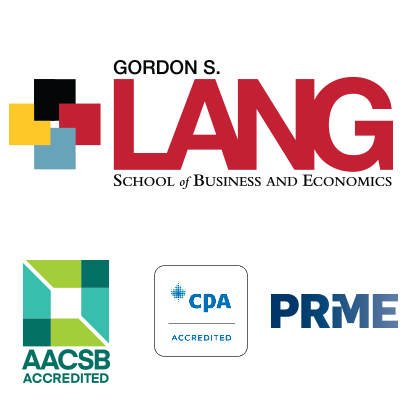Normally, if you tell a Guelph student they’re going to be stuck in the Science Complex all weekend, perhaps even into the night, they are apprehensive to say the least. During the Improve Life Challenge, though, they jump at the chance to band together with other students, community partners, and mentors to solve some of the world’s biggest problems.
Last year, Dr. Dan Gillis, Associate Professor in the School of Computer Science in the College of Engineering and Physical Science (CEPS) ran a “hackathon”, where students looked for ways to improve mental health. When he began planning for 2018, Gillis approached the Centre for Business and Student Enterprise (CBaSE). CBaSE helped reimagine the event to increase interdisciplinary teamwork. This year, every College was represented at the Improve Life Challenge, and the focus was on helping students bring their ideas to life and experience a new process of problem solving to innovative solutions.
CBaSE Program Manager, Erin Doherty, was overwhelmed with the events success. “The Improve Life Challenge has been a wonderful opportunity to facilitate connections within the student body at different colleges and it’s been amazing to watch our students unlock the full potential of their learning experience here at the University of Guelph. Providing the opportunity for students to experience new ways of learning and overcoming challenges empowers them to be creative, curious and innovative. The creations of our students are so inspiring and the deep learning the students went through to come to the end result will stay with them for a lifetime.”
The third place team, composed of Elvis Nguyen, Ambrose Lai, Ghisay Peryagh and Jessie Leung, created Influenz, software to track flu outbreaks in real time. These Gryphons know that agile thinking will help humanity thrive.
Jacob Elliot of the College of Business and Economics (CBE) and CEPS student Murtaz Bahrainwala met for the first time during the challenge and their combination of business and scientific expertise was electric. They developed the second place prize winner, WaterWave, a product that shows consumers their water usage in real time, making water waste tangible. Because when people understand, they can adjust.
First place went to Alejandro Lobo Mujica, Samuel Loveys and Elizabeth Broderick, who impressively developed Cognitive, a tool to provide ASL translation. The mobile app translates sign language into written communication with the goal of improving life by increasing inclusion and justice for people who communicate in Sign.
Both WaterWave and Cognitive have already been accepted into the CBASE startup incubator program, The Hub, to kickstart development!
Dr. Dan Gillis thinks that bringing diverse viewpoints together is one of the most important parts of the Challenge. “We want every student to come and get involved in this type of a challenge.”
